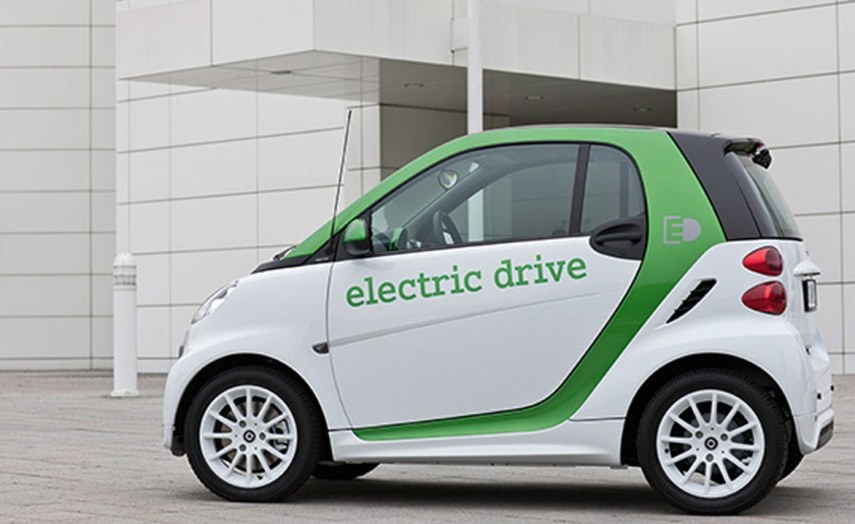Nigeria is at a pivotal crossroads in its development. Our nation, blessed with an abundance of natural resources and a burgeoning population, has a unique opportunity to make an indelible mark in the fight against climate change. The linchpin to achieving a sustainable future for Nigeria is electrifying the transportation sector through the widespread adoption of Electric Vehicles (EVs). In this article, we will delve into compelling reasons why transitioning from Internal Combustion Engine (ICE) vehicles to EVs can directly address challenges Nigerians face daily while unlocking economic opportunities.
Cleaner Air and Better Health for Nigerians
This is a fundamental benefit of green economy anywhere. Many Nigerian cities face worsening air pollution, fueled by emissions from ICE vehicles. This pollution contributes to respiratory illnesses, heart disease, and other health problems, particularly in urban areas. EVs, which produce zero tailpipe emissions, can dramatically reduce air pollution, resulting in cleaner air and healthier communities.
A healthier community means fewer trips to the hospital, lower healthcare costs, and a stronger, more productive workforce. For families, this translates to fewer expenses on medical bills and more money for essentials like food, education, and housing.
Cutting Transport Costs for Everyday Nigerians
With petrol prices exceeding ₦1,000 per liter, transportation costs are at an all-time high. Many Nigerians spend a significant portion of their income on fuel and public transport fares. EVs, however, are cheaper to run. Charging an EV with a 60 kWh battery costs about ₦10,000, compared to ₦50,000–₦75,000 to fill up an equivalent ICE vehicle.
For public transport users, this could lead to a 30–50% reduction in fares. For drivers, it means keeping more of their hard-earned money. With EVs, the average Nigerian can afford more and worry less about fluctuating fuel prices.
Making Food More Affordable
The high cost of food in Nigeria is closely tied to transportation expenses. Moving agricultural products from farms to markets accounts for up to 50% of food prices. Electrifying transportation fleets could lower logistics costs, making basic staples like rice, vegetables, and yams more affordable for households. For many Nigerians, this would be a lifeline in an economy where food prices continue to soar.
Economic Growth and Job Creation
Transitioning to e-mobility isn’t just about cleaner air—it’s also about creating jobs. Building an EV industry in Nigeria, from assembly plants to charging stations, can generate thousands of jobs across the country. Local manufacturing of EVs would reduce reliance on expensive imports, saving foreign exchange and boosting the local economy.
This economic transformation has ripple effects: higher employment, stronger businesses, and better opportunities for Nigerians to thrive.
Harnessing Nigeria’s Renewable Energy Potential
Nigeria is rich in renewable energy resources like solar, wind, and hydropower. Tapping into these to charge EVs can reduce the country’s dependence on costly imported fossil fuels. This shift would both cut emissions and strengthen energy security by diversifying power generation sources.
Solar-powered charging stations in rural and urban areas could also provide electricity access to underserved communities, addressing Nigeria’s energy inequality while supporting EV adoption.
Infrastructure Challenges
One major concern for Nigerians regarding EVs is the lack of charging infrastructure. Without charging stations, EVs may seem impractical, especially for long-distance travel. But this challenge also presents an opportunity.
Investing in nationwide charging infrastructure can create jobs, attract private sector investment, and build a resilient energy system. Public-private partnerships could lead the way, ensuring that EV adoption benefits everyone—from urban commuters to rural communities.
Why Nigeria Must Act Now
The global shift to EVs is already underway, with many countries including Nigeria committing to phasing out ICE vehicles in the coming decades. If Nigeria delays, it risks falling behind in an industry that could redefine transportation and energy. But by acting now, the country can establish itself as a leader in the African EV market.
E-mobility offers solutions to the challenges Nigerians care about most: affordable transport, accessible food, cleaner air, better health, and economic stability. By transitioning from ICE vehicles to EVs, we can transform our economy, improve our lives, and secure a sustainable future.
The climate crisis and economic challenges demand bold action. E-mobility is a vision for tomorrow and a necessity today. Nigerians deserve affordable transport, healthier communities, and economic opportunities.
Businesses must invest in EV technology, the government must create policies that incentivize adoption, and individuals must embrace this change.
Together, we can electrify Nigeria’s transportation system and drive the nation toward a greener, more prosperous future.


